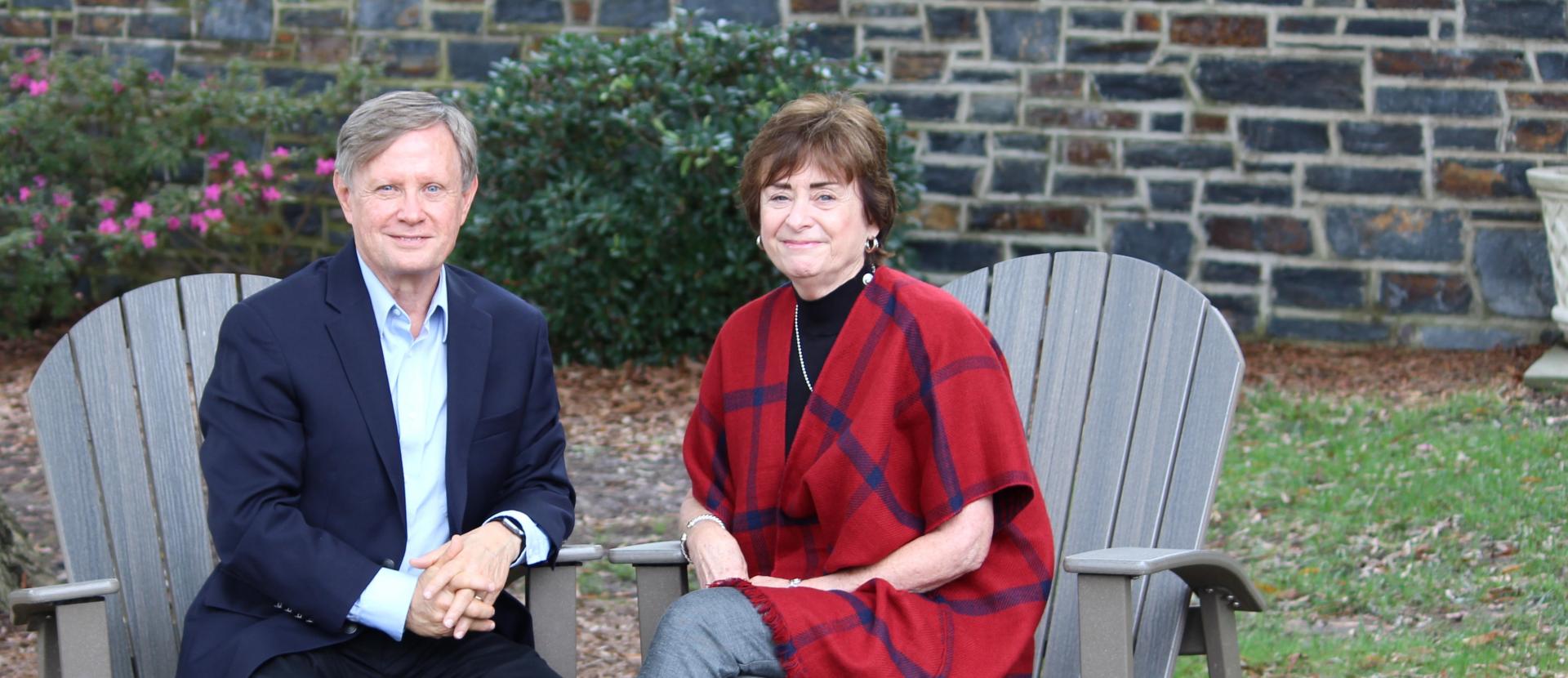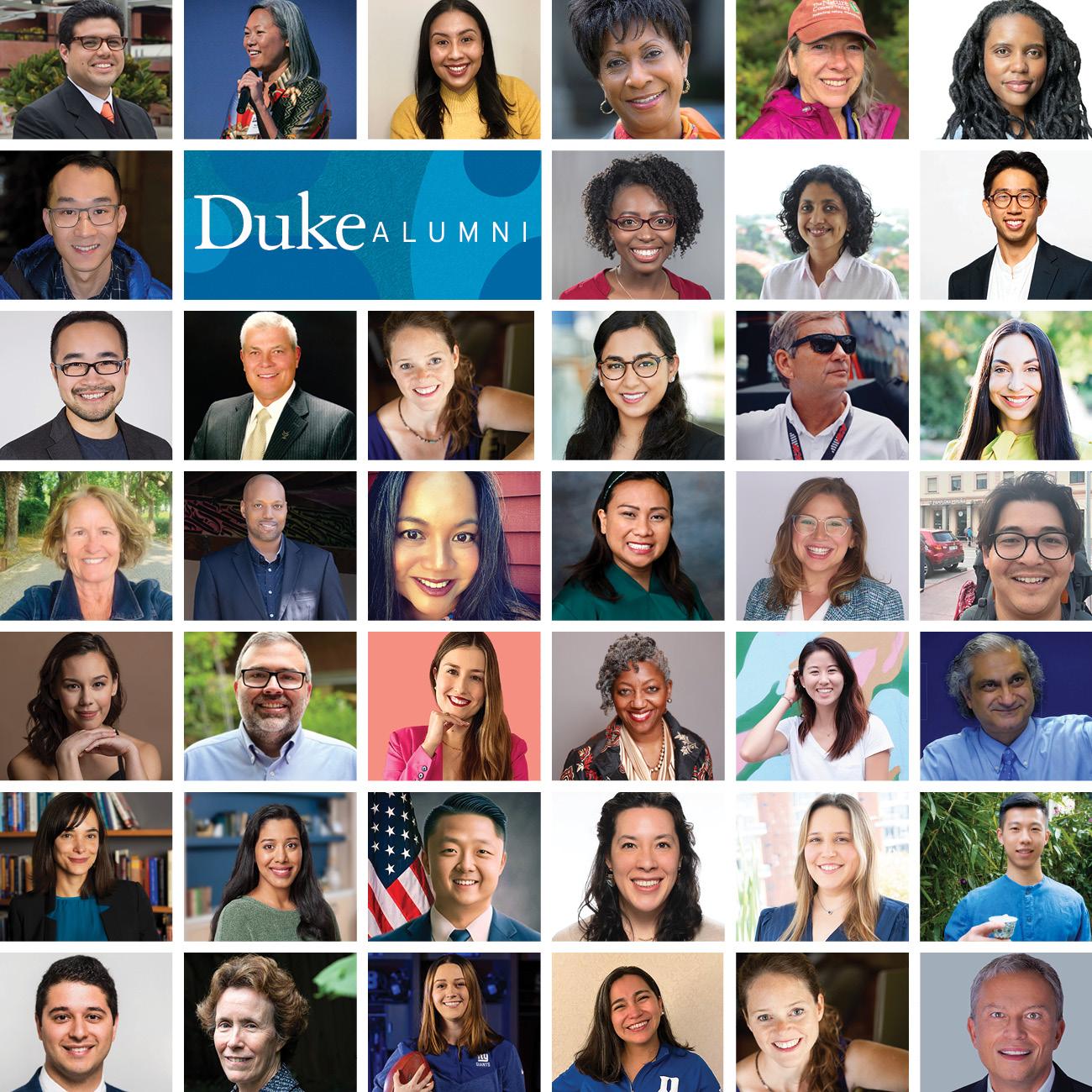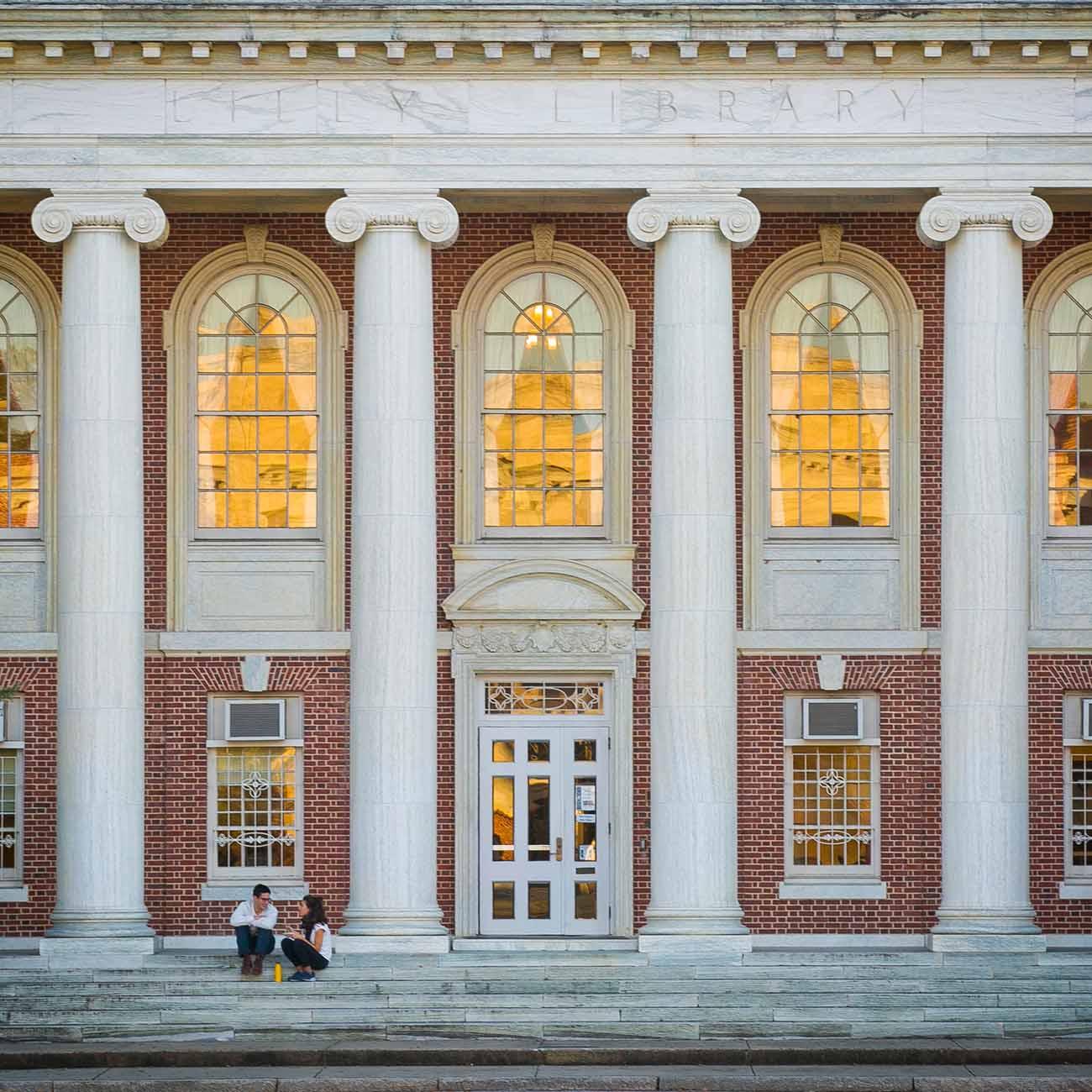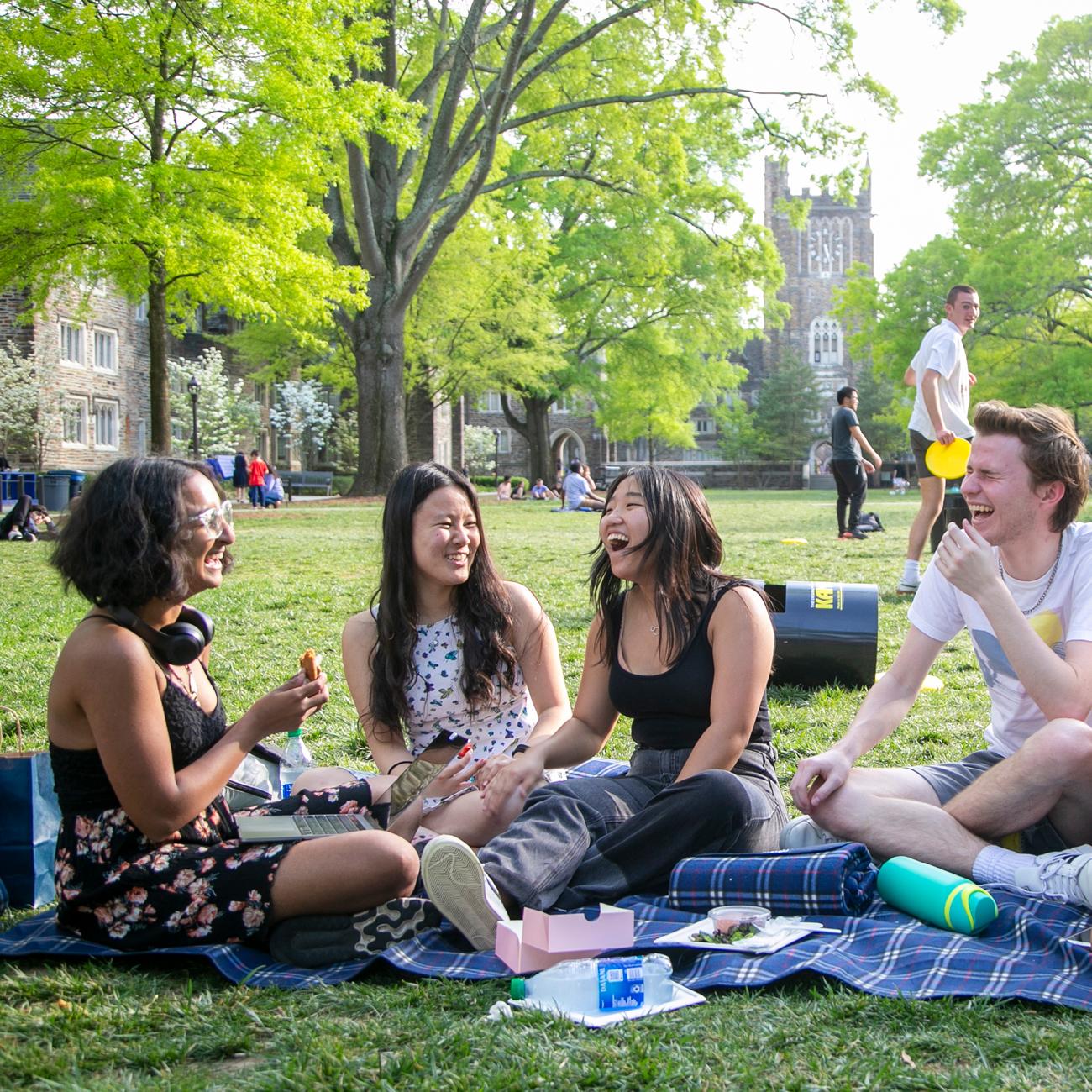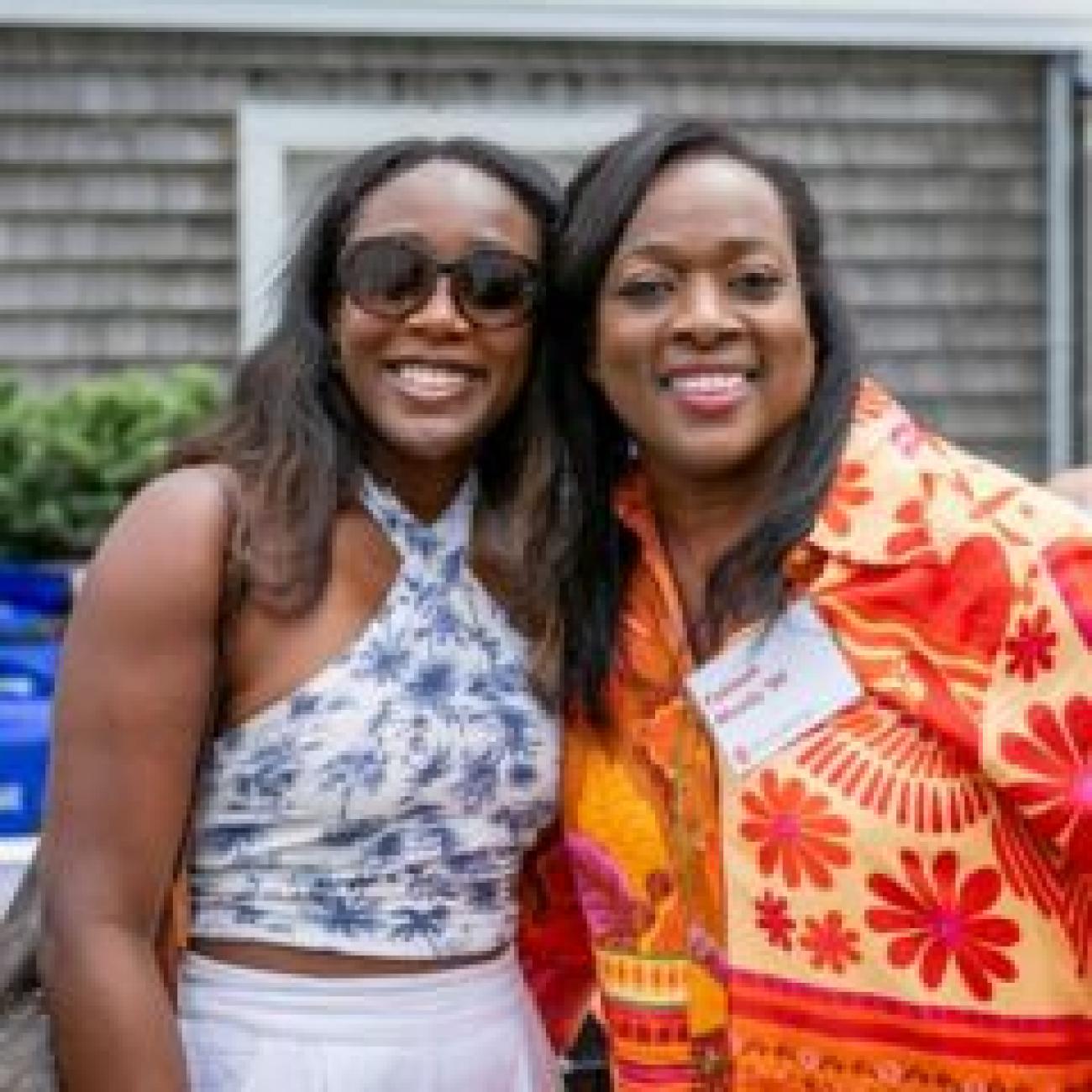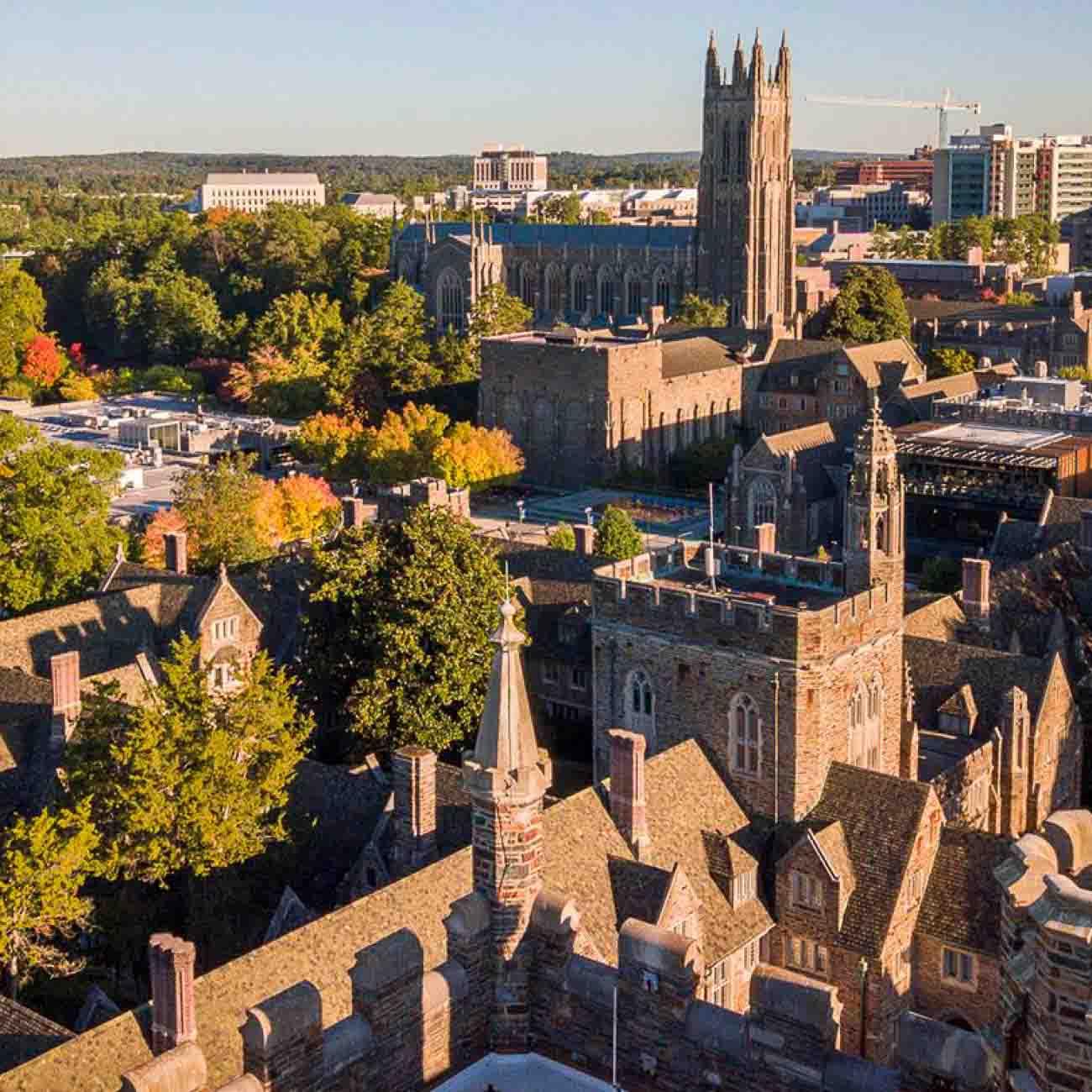The Right Experience
A move back to Durham meant Dennis Ph.D.’78 and Jane Gilmore Ph.D.’80, P’14 could share their expertise and offer their help to Duke in many ways.
Dennis and Jane Gilmore lived all over the United States as they built their life together. When an opportunity came to live in the Research Triangle area for the last few years of Dennis’ career — and possibly retire near family and their graduate alma mater — they jumped at the opportunity.
“We’ve lived north, south, east and west in the United States, so we’ve gotten a good feel as to the true value that an education at Duke provides relative to colleges and universities that we lived near,” says Dennis, who met Jane when both were chemistry Ph.D. students in adjacent labs. “Our perspective about Duke as an institution and its uniqueness increased over that entire 40-year period as a result of these interactions. Through it all, Duke is just a spectacular place for education.”
When they returned, they re-engaged with the university quickly. Jane became an active volunteer at Duke Gardens and has since joined its Board of Advisors. Dennis began career-mentoring students at The Graduate School (TGS) and then joined the Graduate School Board of Visitors. Once they were involved at Duke as volunteers, they developed a detailed understanding of how their philanthropic contributions could support important university priorities.
The Gilmores first made annual gifts to the Gardens, TGS and the medical school (their son, Brian M.D.’14, a chief resident of surgery at Duke, and their daughter-in-law, Katherine Lee, is a Duke Family Medicine doctor). Then they decided to issue a three-year Annual Fund challenge at The Graduate School. The couple would make a gift of $50,000 each year if TGS received a certain number of new donations over $1,000. The target number of new donations would increase each year. The challenge has been a hit: The Graduate School aimed to raise a total of $500,000 by end of 2022, but has cleared over $650,000 total each of the first two years and captured the match for a second consecutive year.
The Gilmores’ inspiration for this gift was tied to Duke’s commitment to extend Ph.D. funding year-round for five years. They knew that there would be a need for more external financial support to fulfill this commitment, and they especially liked the challenge-match method of involving more people to help fill that need. “The Graduate School needed to get a broader spectrum of contributions across the alumni pool, and we wanted to help do our part to see if we can make that happen,” Dennis said. “Putting the money into a vehicle, a strategy, if you will, that allowed it to be amplified and advertised and marketed to appeal to other alumni for contributions, struck our conscience as an effective way of expanding donations.”
Hands-on help
While financial support is a critical means to an end, volunteering is where the Gilmores’ passions lie. Moving all over the country gave Jane an interest in gardening as a way to make a new house a home. Coming back to Durham, where they met as grad students, completed a circle.
“When I was a graduate student at Duke, when I would get a break, Duke Gardens was one of my favorite places,” Jane says. “When we moved back here almost six years ago, I looked into the opportunities to volunteer at the gardens and got involved in various aspects. One of my volunteer activities is to be an ambassador at the main gate to greet people who come to the garden. I interact with many people who are from Durham and a lot of people who are visiting Durham from out of state who have heard about Duke Gardens.
“I also encounter people who either are getting medical treatment at the medical center or families of patients. Duke Gardens serves a very important role in giving people something to be educated about, to enjoy, to get some quiet time, some relief from stress. It serves a great purpose, so that’s why we’re so enthused about being able to help out.”
Dennis spent much of his time in industry mentoring and coaching people in their careers. He enjoyed helping them understand how their skills and capabilities should influence their long-term career path. The natural place to start was Duke Chemistry. Department chair Kathy Franz connected Dennis with a student, and now he has coached more than a dozen.
“Even when I was a graduate student, I would have liked to have had a bit more input from the outside world about positions other than academic positions,” Dennis says. “That’s where I feel my role is, helping students see what could be done in an industrial career or a government career. Fortunately the Graduate School’s professional development support program has advanced tremendously over the past few years and the resources available to students today are impressive. But the perspectives and insights I’ve gained throughout my career and other alumni have gained throughout their careers can augment those resources in meaningful ways for individual students searching for additional information. The impact from utilizing excellent soft skills on the trajectory of a career should not be underestimated.”
Grads leading the way
Duke has about 2,000 more graduate students than undergraduates, and both of the Gilmores are intent on helping the public understand that. “I always felt that when people think of Duke, they think of the undergraduate institution,” Jane says. “People should be made more aware of things like The Graduate School and the Gardens and the medical school — to provide support to them so they can grow. The graduate program could provide a lot of opportunities for students to become more prominent nationwide in different areas, but that does need funding. Likewise, the Gardens, it’s a nice little paradise, but its existence needs to be more appreciated and known.”
As they enjoy their home in Durham, the Gilmores continue to think deeply about Duke, work intentionally to promote the aspects they love about the university, and give generously to support them. “Having an education is such an important part of one’s future,” Dennis says. “Getting the right educational experience is something not to be taken for granted.”







